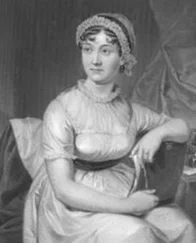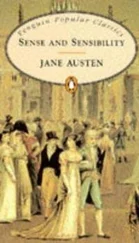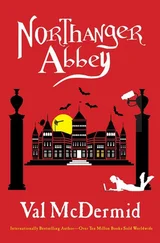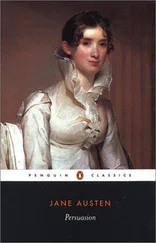Jane Austen - Northanger Abbey
Здесь есть возможность читать онлайн «Jane Austen - Northanger Abbey» весь текст электронной книги совершенно бесплатно (целиком полную версию без сокращений). В некоторых случаях можно слушать аудио, скачать через торрент в формате fb2 и присутствует краткое содержание. Год выпуска: 1803, Жанр: Исторические любовные романы, Классическая проза, на английском языке. Описание произведения, (предисловие) а так же отзывы посетителей доступны на портале библиотеки ЛибКат.
- Название:Northanger Abbey
- Автор:
- Жанр:
- Год:1803
- ISBN:нет данных
- Рейтинг книги:5 / 5. Голосов: 1
-
Избранное:Добавить в избранное
- Отзывы:
-
Ваша оценка:
- 100
- 1
- 2
- 3
- 4
- 5
Northanger Abbey: краткое содержание, описание и аннотация
Предлагаем к чтению аннотацию, описание, краткое содержание или предисловие (зависит от того, что написал сам автор книги «Northanger Abbey»). Если вы не нашли необходимую информацию о книге — напишите в комментариях, мы постараемся отыскать её.
Northanger Abbey — читать онлайн бесплатно полную книгу (весь текст) целиком
Ниже представлен текст книги, разбитый по страницам. Система сохранения места последней прочитанной страницы, позволяет с удобством читать онлайн бесплатно книгу «Northanger Abbey», без необходимости каждый раз заново искать на чём Вы остановились. Поставьте закладку, и сможете в любой момент перейти на страницу, на которой закончили чтение.
Интервал:
Закладка:
This was just such a summary view of the affair as Catherine could listen to; another sentence might have endangered her complaisance, and made her reply less rational; for soon were all her thinking powers swallowed up in the reflection of her own change of feelings and spirits since last she had trodden that well-known road. It was not three months ago since, wild with joyful expectation, she had there run backwards and forwards some ten times a day, with an heart light, gay, and independent; looking forward to pleasures untasted and unalloyed, and free from the apprehension of evil as from the knowledge of it. Three months ago had seen her all this; and now, how altered a being did she return!
She was received by the Allens with all the kindness which her unlooked-for appearance, acting on a steady affection, would naturally call forth; and great was their surprise, and warm their displeasure, on hearing how she had been treated - though Mrs. Morland's account of it was no inflated representation, no studied appeal to their passions. "Catherine took us quite by surprise yesterday evening," said she. "She travelled all the way post by herself, and knew nothing of coming till Saturday night; for General Tilney, from some odd fancy or other, all of a sudden grew tired of having her there, and almost turned her out of the house. Very unfriendly, certainly; and he must be a very odd man; but we are so glad to have her amongst us again! And it is a great comfort to find that she is not a poor helpless creature, but can shift very well for herself."
Mr. Allen expressed himself on the occasion with the reasonable resentment of a sensible friend; and Mrs. Allen thought his expressions quite good enough to be immediately made use of again by herself. His wonder, his conjectures, and his explanations became in succession hers, with the addition of this single remark - "I really have not patience with the general" - to fill up every accidental pause. And, "I really have not patience with the general," was uttered twice after Mr. Allen left the room, without any relaxation of anger, or any material digression of thought. A more considerable degree of wandering attended the third repetition; and, after completing the fourth, she immediately added, "Only think, my dear, of my having got that frightful great rent in my best Mechlin so charmingly mended, before I left Bath, that one can hardly see where it was. I must show it you some day or other. Bath is a nice place, Catherine, after all. I assure you I did not above half like coming away. Mrs. Thorpe's being there was such a comfort to us, was not it? You know, you and I were quite forlorn at first."
"Yes, but that did not last long," said Catherine, her eyes brightening at the recollection of what had first given spirit to her existence there.
"Very true: we soon met with Mrs. Thorpe, and then we wanted for nothing. My dear, do not you think these silk gloves wear very well? I put them on new the first time of our going to the Lower Rooms, you know, and I have worn them a great deal since. Do you remember that evening?"
"Do I! Oh! Perfectly."
"It was very agreeable, was not it? Mr. Tilney drank tea with us, and I always thought him a great addition, he is so very agreeable. I have a notion you danced with him, but am not quite sure. I remember I had my favourite gown on."
Catherine could not answer; and, after a short trial of other subjects, Mrs. Allen again returned to - "I really have not patience with the general! Such an agreeable, worthy man as he seemed to be! I do not suppose, Mrs. Morland, you ever saw a better-bred man in your life. His lodgings were taken the very day after he left them, Catherine. But no wonder; Milsom Street, you know."
As they walked home again, Mrs. Morland endeavoured to impress on her daughter's mind the happiness of having such steady well-wishers as Mr. and Mrs. Allen, and the very little consideration which the neglect or unkindness of slight acquaintance like the Tilneys ought to have with her, while she could preserve the good opinion and affection of her earliest friends. There was a great deal of good sense in all this; but there are some situations of the human mind in which good sense has very little power; and Catherine's feelings contradicted almost every position her mother advanced. It was upon the behaviour of these very slight acquaintance that all her present happiness depended; and while Mrs. Morland was successfully confirming her own opinions by the justness of her own representations, Catherine was silently reflecting that now Henry must have arrived at Northanger; now he must have heard of her departure; and now, perhaps, they were all setting off for Hereford.
CHAPTER 30
Catherine's disposition was not naturally sedentary, nor had her habits been ever very industrious; but whatever might hitherto have been her defects of that sort, her mother could not but perceive them now to be greatly increased. She could neither sit still nor employ herself for ten minutes together, walking round the garden and orchard again and again, as if nothing but motion was voluntary; and it seemed as if she could even walk about the house rather than remain fixed for any time in the parlour. Her loss of spirits was a yet greater alteration. In her rambling and her idleness she might only be a caricature of herself; but in her silence and sadness she was the very reverse of all that she had been before.
For two days Mrs. Morland allowed it to pass even without a hint; but when a third night's rest had neither restored her cheerfulness, improved her in useful activity, nor given her a greater inclination for needlework, she could no longer refrain from the gentle reproof of, "My dear Catherine, I am afraid you are growing quite a fine lady. I do not know when poor Richard's cravats would be done, if he had no friend but you. Your head runs too much upon Bath; but there is a time for everything - a time for balls and plays, and a time for work. You have had a long run of amusement, and now you must try to be useful."
Catherine took up her work directly, saying, in a dejected voice, that "her head did not run upon Bath - much."
"Then you are fretting about General Tilney, and that is very simple of you; for ten to one whether you ever see him again. You should never fret about trifles." After a short silence - "I hope, my Catherine, you are not getting out of humour with home because it is not so grand as Northanger. That would be turning your visit into an evil indeed. Wherever you are you should always be contented, but especially at home, because there you must spend the most of your time. I did not quite like, at breakfast, to hear you talk so much about the French bread at Northanger."
"I am sure I do not care about the bread. It is all the same to me what I eat."
"There is a very clever essay in one of the books upstairs upon much such a subject, about young girls that have been spoilt for home by great acquaintance - The Mirror, I think. I will look it out for you some day or other, because I am sure it will do you good."
Catherine said no more, and, with an endeavour to do right, applied to her work; but, after a few minutes, sunk again, without knowing it herself, into languor and listlessness, moving herself in her chair, from the irritation of weariness, much oftener than she moved her needle. Mrs. Morland watched the progress of this relapse; and seeing, in her daughter's absent and dissatisfied look, the full proof of that repining spirit to which she had now begun to attribute her want of cheerfulness, hastily left the room to fetch the book in question, anxious to lose no time in attacking so dreadful a malady. It was some time before she could find what she looked for; and other family matters occurring to detain her, a quarter of an hour had elapsed ere she returned downstairs with the volume from which so much was hoped. Her avocations above having shut out all noise but what she created herself, she knew not that a visitor had arrived within the last few minutes, till, on entering the room, the first object she beheld was a young man whom she had never seen before. With a look of much respect, he immediately rose, and being introduced to her by her conscious daughter as "Mr. Henry Tilney," with the embarrassment of real sensibility began to apologize for his appearance there, acknowledging that after what had passed he had little right to expect a welcome at Fullerton, and stating his impatience to be assured of Miss Morland's having reached her home in safety, as the cause of his intrusion. He did not address himself to an uncandid judge or a resentful heart. Far from comprehending him or his sister in their father's misconduct, Mrs. Morland had been always kindly disposed towards each, and instantly, pleased by his appearance, received him with the simple professions of unaffected benevolence; thanking him for such an attention to her daughter, assuring him that the friends of her children were always welcome there, and entreating him to say not another word of the past.
Читать дальшеИнтервал:
Закладка:
Похожие книги на «Northanger Abbey»
Представляем Вашему вниманию похожие книги на «Northanger Abbey» списком для выбора. Мы отобрали схожую по названию и смыслу литературу в надежде предоставить читателям больше вариантов отыскать новые, интересные, ещё непрочитанные произведения.
Обсуждение, отзывы о книге «Northanger Abbey» и просто собственные мнения читателей. Оставьте ваши комментарии, напишите, что Вы думаете о произведении, его смысле или главных героях. Укажите что конкретно понравилось, а что нет, и почему Вы так считаете.






